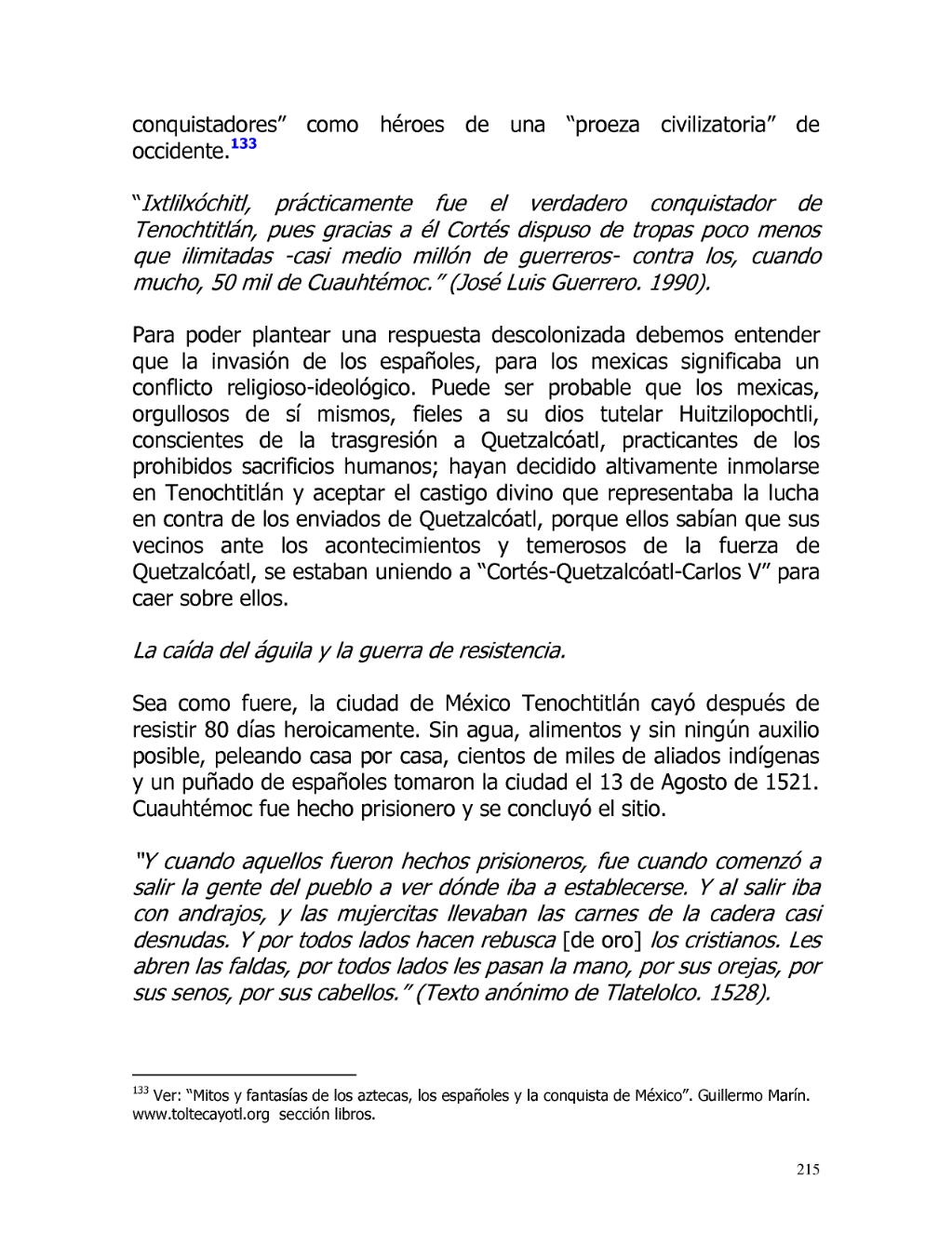conquerors" as heroes of an epic western "civilizing feat".[1]
"In practical terms, Ixtlilxóchitl was the real conqueror of Tenochtitlan, because thanks to him Cortés had available troops nearly unlimited —almost half a million warriors— against the, at the most, 50 thousand Cuauhtémoc warriors." (Jose Luis Guerrero. 1990).
In order to be able to pose an un-colonized response, we must understand that the spanish invasion, for the mexicas meant a religious—ideological conflict. It may be possible that the mexicas, proud of themselves, faithful to their god Huitzilopochtli, aware of the transgression to Quetzalcoatl, practitioners of the banned human sacrifices; have decided to proudly sacrifice themselves in Tenochtitlan and accept the divine punishment that represented the struggle against the Quetzalcoatl envoys, because they knew that their neighbors, before the events and fearful of the strength of Quetzalcoatl, were joining "Cortés—Quetzalcoatl-Carlos V" to fall upon them.
The eagle fall and the resistance war.
Be it as it may, the city of Mexico Tenochtitlan fell after heroically resisting 80 days. Without water, food and without any possible aid, fighting house by house, against hundreds of thousands of indigenous allies and a handful of spaniards that took the city on August 13, 1521. Cuauhtémoc was taken prisoner and the siege concluded.
"And when those were taken prisoner, was when townspeople began to come out and to see where they were going to establish themselves. And when they came out they wore tatters, and the little women had their hip flesh almost bare. And everywhere the christians researched [for gold]. They opened their skirts, passed their hands everywhere, by their ears, their breasts, and their hair." (Anonymous Tlatelolco text. 1528).
____________________
- ↑ See: "Myths and fantasies of the Aztecs, the Spanish and the conquest of Mexico". Guillermo Marín. www.toltecayotl.org books section.
This page was originally published in Spanish, and is translated by Wikisource editors. It does not use the proofread page system traditionally; it is used to verify translation. Proofreading and validation must be done by editors who are fluent in both the original and the translated language. Follow the interwiki link under In other languages to view this page in Spanish. |
